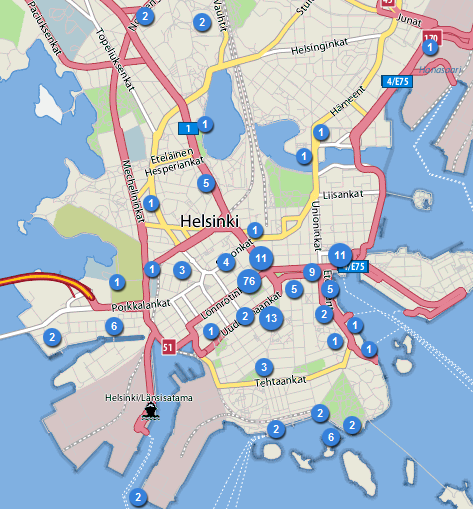Before Christmas I posted about the possible break-up of clouds. For the past 5 years or so, the usual suspects such as Yahoo, and Google, and more recently Facebook and a re-vitalized AOL have been sucking up smaller collectives of socially active sites in search of rich pockets of user engagement.
Clouds are an apt metaphor because we’re reaching a time when some of these large, ad-supported clouds are getting too heavy and are starting to look for ways to offload sites which don’t monetize by either shutting them down or selling them off. Think of the threat late last year to shut down delicious.com as the first cloudburst which resulted in a shower of users taking their data fleeing that cloud in search of a new home.
FourSquare announced that they’ve added photo uploads to venues for their check-in service. This leads me to ask, why they make me upload new photos for places I’ve been. I’ve got year’s worth GPS-encoded of photos sitting on Flickr. 4Sq can cross-reference the location and time stamp on my photos, match it up with my check-in history and get a bunch of photos for venues right away.

Why doesn’t FourSquare let me push in photos from my Flickr account? Are they worried about mis-matches? They could use a little Machine Tag foo and let me select which photos to link to a location. Most likely it’s just a pain to build a connector. Better to start over and build up your own dataset right? It’s cleaner, more current, and they avoid the legal hassles of having to partner with Yahoo, much better to own the data right?
The nagging problem about tying venue photos to images hosted on another cloud is that it opens 4Sq up to dependencies. Do they really want to rely on flickr to host their venue photos? Not only do they lose editorial control over those photos and if a photo turns out to be offensive or violates some kind of copyright, who is at fault? FourSquare? Flickr? Yahoo? Most likely you’re going to have to cut some kind of deal which means the Biz Dev guys have to get involved. Contracts, SLAs, a big pain which limits your options in the future.
Tim O’Reilly posted a while back that the tendency of Web 2.0 companies is to monopolize their vertical to secure control and cut dependencies:
One of the points I’ve made repeatedly about Web 2.0 is that it is the design of systems that get better the more people use them, and that over time, such systems have a natural tendency towards monopoly.
If big companies get too protective of their data and the legal hassles around free exchange of data make it harder for consumers to connect their data in these clouds together, we’ll all be forced to either throw our lot into a single cloud which gives us the most complete suite of connected services (facebook or google) or risk tenuous connections in search of our own, best-of-breed solution.
Consider the alternative. Consumers hosting their own data. Check out Pogoplug, this neat little service that sticks an ethernet port into the back of a external hard drive that sits on your desk and connects directly to the Internet, turning that hard drive into your own little “private cloud.”

What if your Pogoplug held all your photos, blog posts, status updates, scrobbling history, and other lifestream detrius? You can stream it out the back and use it to feed flickr, facebook, and your other favorite caching layers where people can view it. Again, I’m not suggesting you serve up to the internet at large via this little box on your desk, that would be madness. Just have all or originals there and use your favorite social network, photo/video/link sharing service as the copy that feeds your fans. The important point is that the source, the seed for all these large clouds to which you syndicate, is under your control.
If a shiny new photo-sharing startup catches your eye you can give it a shot by forking off a feed of your photos to it’s API endpoint and get started with a collection of your own stuff on their service. No need to export from old photo-sharing site to this new one, you’ve got the raw data sitting on your “private cloud” and can start with a clean copy of your entire archive.
For further reading, there’s a healthy thread between Jeffery Zeldman, Tom Henrich, Jeff Croft, Tantek Çelik, Kevin Marks, Glenda Bautista, Andy Rutledge and others about the methods, and even necessity of hosting your own data. Tantek, for one, has put his money where his mouth is and is busy writing software and pushing this vision.
I’m building a solution, bit by bit. It’s certainly incomplete, and with rough edges (Jeffrey has pointed out plenty of the areas that need work), but iteratively improving as I find time and inspiration to work on it.
I’d rather host my data and live with such awkwardness in the open than be a sharecropper on so many beautiful social content farms.
This is what I mean by “own your data”. Your site should be the source and hub for everything you post online. This doesn’t exist yet, it’s a forward looking vision, and I and others are hard at work building it. It’s the future of the indie web.
On Owning Your Data
If this kind of stuff interests you, check out IndieWebCamp in Portland this June.
Leave a comment